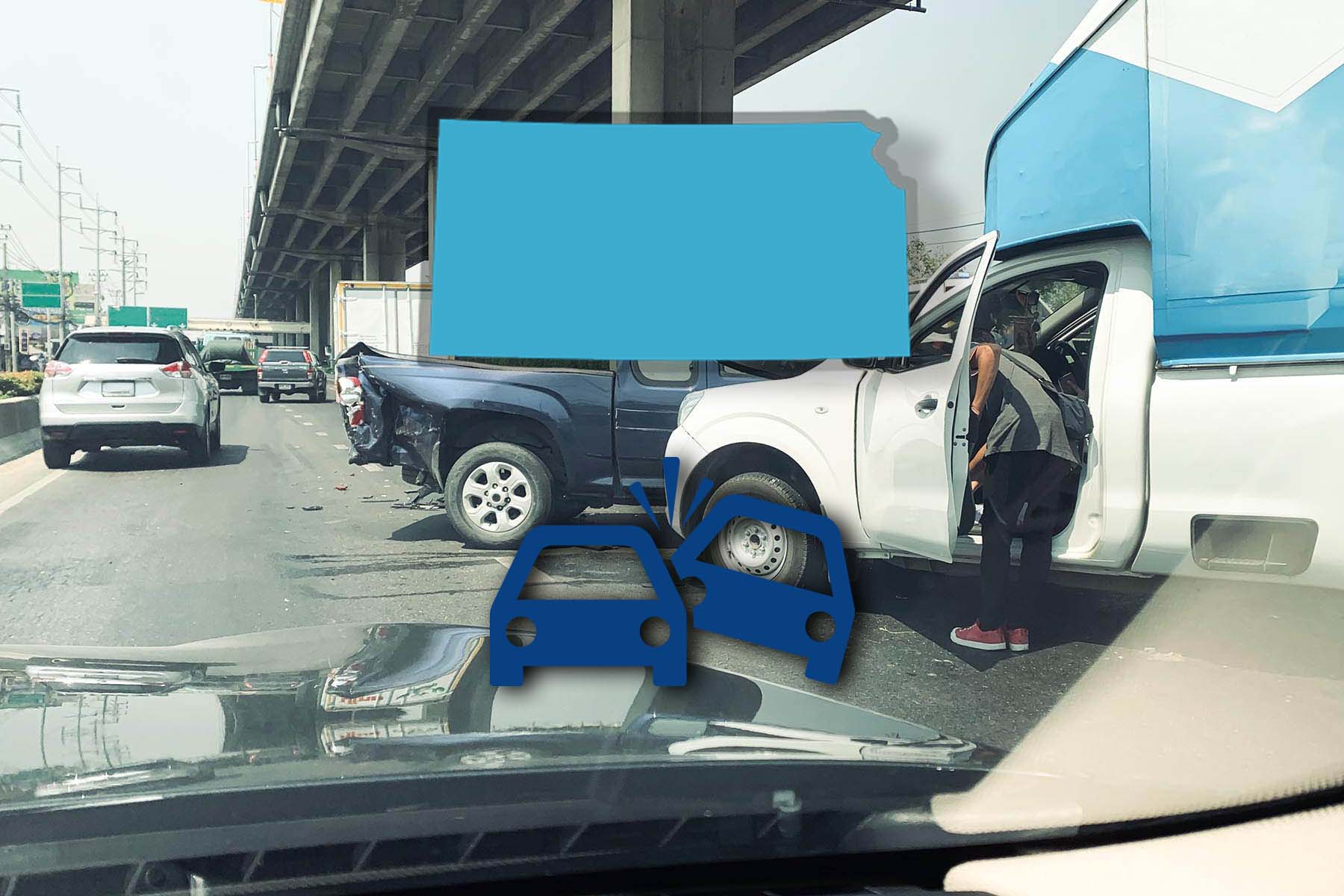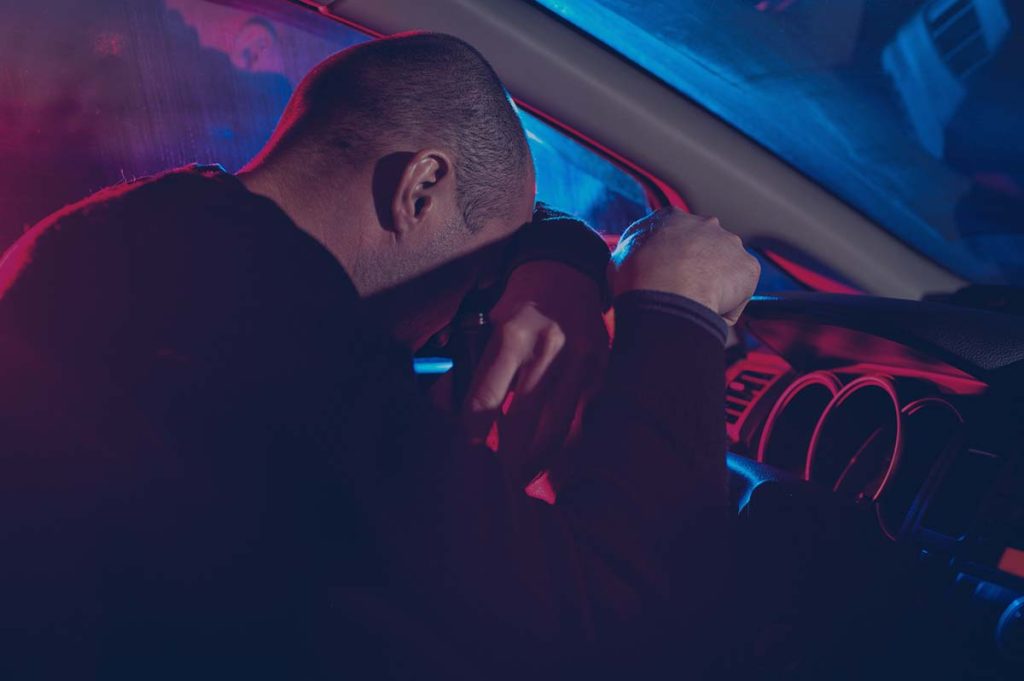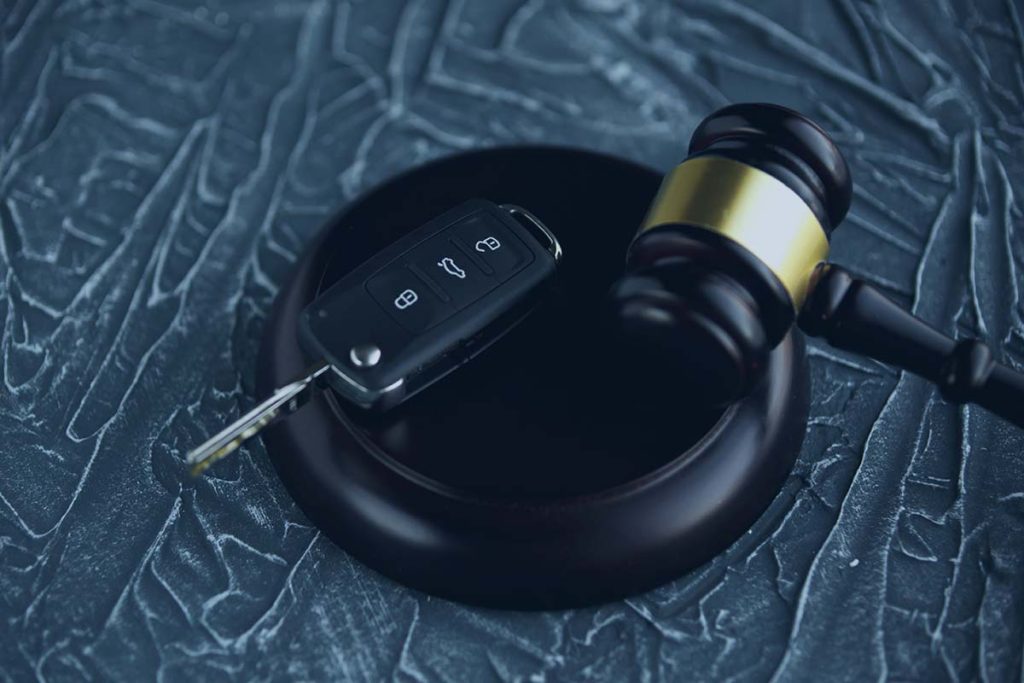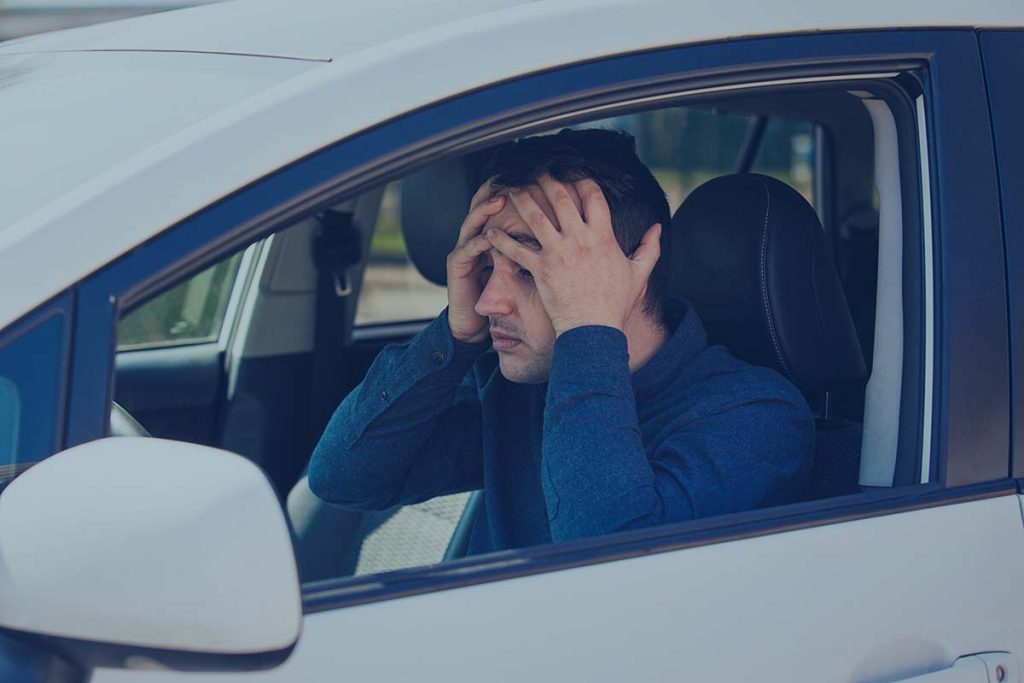
Kansas hit and run laws: Can you goto jail for leaving the scene of an accident?
- Kansas hit and run laws: Can you goto jail for leaving the scene of an accident?
- Kansas hit and run laws: Section 8-1602 explained
- Did you have intention or motive?
- What is the penalty for leaving the scene of an accident/ hit and run in Kansas?
- Civil penalties for leaving the scene of an accident in Kansas
- How is fault determined in Kansas?
- What is the statute of limitations on accidents in Kansas?
- What happens if you strike a parked vehicle in Kansas?
- Kansas hit and run laws: defenses for leaving the scene of an accident
Yes. Under 8-1602, Kansas hit and run laws, knowingly leaving the scene of an accident that results in death or serious injury is a level 5 felony.
Quick take: Kansas hit and run laws
- Failure to remain at the scene of an accident that results in death is a felony.
- If the act was intentional, prosecutors may pursue vehicular homicide charges.
- The victim has two years to file a claim. If the victim dies, the family has two years starting from the time of death.
- Kansas is a no-fault state.
- Do not admit fault at the scene of an accident in Kansas.
- You may avoid trial if the victim agrees to settle out of court.
References
- KSA 8-1602 accident resulting in death or personal; injury: duties of drivers, reports: penalties for violations.
- KSA 8-1604 Duty of driver to give certain information after accident: failure to provide proof of liability insurance.
Kansas hit and run laws: Section 8-1602 explained

In Kansas, an accident escalates into a crime if a driver involved knowingly leaves the scene without fulfilling the requirements of section 8-1604 “duty of driver to give certain information after an accident.”
In general, the statute requires you to do the following immediately after an accident:
- Stop the vehicle at the scene or very close to it without disrupting traffic more than is necessary.
- Give your name, address, and vehicle registration number to the owner of the vehicle, property, victim, or law enforcement.
- Upon request, you must exhibit your drivers’ or driving permit and the name of your insurer to the driver or occupant of the struck vehicle or property.
- You must make an immediate effort to determine if any person involved in the accident is dead, injured, or in need of assistance.
- You have a legal obligation to provide reasonable assistance to anyone injured, including making arrangements to transport the victim to a hospital.
How long do you have to report an accident in Kansas?
If a police officer is present at the scene, then it is not necessary to report the incident. However, the statute requires you to notify law enforcement immediately after an accident.
What happens if an accident only results in property damage in Kansas?
How much damage did you cause?
That is the question. If the accident results in property damage that is less than one thousand dollars and the driver leaves the scene, that driver is guilty of a misdemeanor. If the accident results in property damage and injury, the charges escalate into a class A misdemeanor.
Kansas hit-and-run laws: when does a hit-and run-become a felony?

Knowingly leaving the scene of an accident that results in death or great bodily injury is a level 8 felony in Kansas. Also, if the driver was intoxicated, under the influence of drugs, or if the accused has multiple hit and run records, the charges may escalate into a felony.
Note: Depending on the facts presented, an individual may face multiple charges. Furthermore, upon conviction, your driving privileges will be revoked.
What happens if you accidentally hit someone with your car and they die in Kansas?
According to section 8-1602, if an accident results in injury or death, you must immediately report the accident by, quote “quickest means of communication.” Failure to do that may result in hit-and-run charges. In addition, if the victim dies, you may face level 6 felony charges.
Note: If you knew, or should have known that the accident resulted in death or serious injury and left the scene, the charges may escalate to level five felony.
Did you have intention or motive?
If there was a motive behind the accident (such as in a road rage incident), prosecutors may pursue vehicular homicide charges. They may also pursue vehicular manslaughter charges.
What is the penalty for leaving the scene of an accident/ hit and run in Kansas?

- Hit and run, property damage less than $1000: traffic infraction punishable by a fine (may escalate to misdemeanor charges if the accused has priors).
- Hit and run, great bodily injury to person: class A misdemeanor punishable by up to 12 months in jail and a maximum fine of $1000.
- Great bodily injury or death: level 6 felony, up to 18 months in prison if the accused does not have priors. The court may also impose a fine.
- Knowingly leaving the scene of an accident resulting in death or great bodily injury: level 5 felony, punishable by up to 32 months in prison if the accused does not have priors.
Civil penalties for leaving the scene of an accident in Kansas
If you are the victim of a hit and run in Kansas, you have a legal right to file a claim against the driver. For example, you may file a claim for hospital bills, property damage, emotional distress, loss of income, reduced earning capacity, and so on. The court may also impose punitive damages on the accused.
Consequently, you must do all you can to assist the police in arresting the person that hit you or your property. To that end, immediately after an accident, if capable, you should do the following:
- Take pictures of the fleeing vehicle or write down everything you can.
- Do not admit fault or comment about your health before talking to a doctor.
- Do not threaten the driver that strikes you or follow the individual.
- Immediately call the police.
- Collect eye witness information if you can, including dashcam footage of the incident.
Remember, hit-and-runs involving phantom vehicles/vehicles that cannot be identified result in compensation only 51% of the time.
How is fault determined in Kansas?

Kansas is a no-fault state, meaning your insurer pays for the damage. To determine fault, what will happen is -your insurer will review the incident’s police report then pay you benefits known as Personal Injury Protection Benefits/PIPS.
How are victims of hit and run compensated in Kansas?
If the police locate the driver of the vehicle that struck you, the individual’s liability cover should cover any injuries or repairs. If not, then your insurer may pay you.
Note: You still have the option to file a suit against the other driver. We recommend consulting with a claims attorney to figure out what claims to file.
What is the statute of limitations on accidents in Kansas?
After an accident in Kansas, you have two years to file a personal injury lawsuit against the other party. If the victim dies, you have two years starting from the time of death to file a claim.
That makes it vital that you act as soon as possible. If you wait too long, the other party will petition the court to dismiss charges.
Kansas hit and run laws: What to remember.
- Do not admit fault or make impulsive statements after an accident.
- You may leave the scene if you have a valid reason to fear for your safety.
- If the damage surpasses $500, or if anyone suffers injury or death. You have a legal obligation to immediately report the accident.
- You must exchange insurance information and contact information with the other driver or property owner.
What happens if you strike a parked vehicle in Kansas?
If you hit a parked vehicle or destroy property, state law requires you to make a reasonable effort to find the property owner. If you cannot, and the damage surpasses $500, or if anyone is injured, you must call the police. What if you cannot find the driver or person attending the vehicle?
You may leave a note containing your contact information on a conspicuous section of the vehicle.
Kansas hit and run laws: defenses for leaving the scene of an accident
Remember that if an accident results in death or great bodily injury, knowingly leaving the scene is a felony.
To avoid these charges, you should:
- Immediately stop your vehicle and render reasonable assistance to anyone who needs it.
- Notify the police and remain at the scene until they arrive.
Negotiate a resolution out of court
If the victim agrees to it, you may opt to resolve the issue through mediation or settlement. This will help you to avoid jail time and a criminal record.
Remember, the prosecution must prove beyond a reasonable doubt that you were the person operating the vehicle at the time of the incident and that you knowingly fled the scene without fulfilling what was required of you. Because of that, some defenses your attorney may use include:
- You feared for your safety.
- Leaving the scene was not willful or intentional.
- The victim refused to receive your information.
- You stopped close to the scene.
- You did not know that the accident occurred.
The facts of the case will determine a suitable defense; therefore, we recommend consulting with an attorney immediately -if the accident resulted in property damage, great bodily injury, or death.
Remember, whatever you say in your report may be used against you during the trial. So, it is in your best interest to let your lawyer speak for you.
Other Kansas Laws